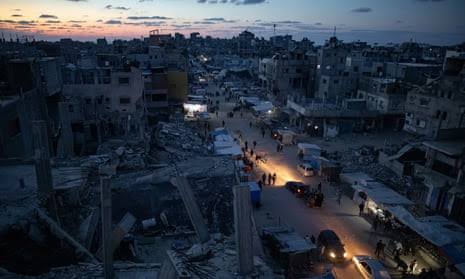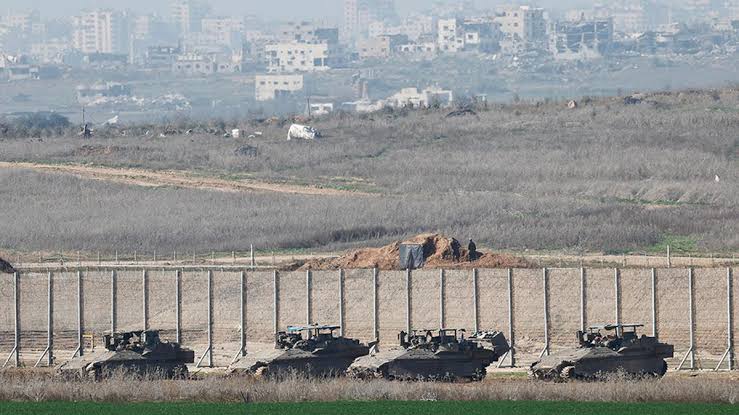A ceasefire agreement between Israel and Hamas is set to commence on Sunday, January 19, 2025, at 06:30 GMT (12:00 PM IST), marking a potential turning point in the 15-month-long conflict in the Gaza Strip. The truce, negotiated with the mediation of Egypt, Qatar, and the United States, aims to bring an end to the war that has caused immense devastation across the region.
 Israeli forces have started withdrawing from Rafah toward the Philadelphi Corridor on the Gaza-Egypt border, according to pro-Hamas sources. The ceasefire will be implemented in three phases, with the initial stage lasting six weeks. During this period, 33 of the remaining 98 hostages will be freed, including women, children, elderly individuals, and the ill or wounded. In exchange, Israel will release nearly 2,000 Palestinian prisoners, including members of militant groups and individuals detained during the conflict.
Israeli forces have started withdrawing from Rafah toward the Philadelphi Corridor on the Gaza-Egypt border, according to pro-Hamas sources. The ceasefire will be implemented in three phases, with the initial stage lasting six weeks. During this period, 33 of the remaining 98 hostages will be freed, including women, children, elderly individuals, and the ill or wounded. In exchange, Israel will release nearly 2,000 Palestinian prisoners, including members of militant groups and individuals detained during the conflict.
On Sunday afternoon, three female hostages are expected to be handed over to the Red Cross, with Israel releasing 30 Palestinian prisoners in return. Additional hostages will be freed in subsequent weeks, with the agreement mandating gradual releases in exchange for Palestinian detainees.
Shifting Dynamics in Gaza
During the initial phase, Israeli troops will retreat from certain positions in Gaza, allowing displaced Palestinians in northern Gaza to return to their homes. However, the post-conflict reconstruction of Gaza, which has suffered massive destruction, remains uncertain. Experts estimate it will require significant international aid and years of rebuilding efforts.
While the ceasefire aims to conclude the war, the potential for renewed hostilities remains high. Hamas, despite losing significant leadership and fighters, retains a foothold in Gaza. Israel, meanwhile, has vowed to prevent Hamas from regaining control and is preparing for the possibility of continued security challenges.
Regional and Global Implications
The war has sent ripples across the Middle East. Iran’s support for militant groups and its “Axis of Resistance” have been severely impacted, with Hezbollah suffering significant losses. However, Israel faces international scrutiny for its actions in Gaza, including accusations of war crimes and genocide, with legal cases pending in international courts.
For Israeli Prime Minister Benjamin Netanyahu, the return of hostages could alleviate some domestic criticism over security failures. However, he remains under pressure from hardliners within his government who oppose a permanent ceasefire.
The war, which began with Hamas’s attack on Israel on October 7, 2023, has resulted in the deaths of over 47,000 Palestinians and significant destruction in Gaza. Israeli casualties include over 1,200 civilians and 400 soldiers.
As the ceasefire takes effect, hopes for lasting peace are tempered by the challenges ahead in rebuilding Gaza and addressing deep-rooted political tensions in the region.




